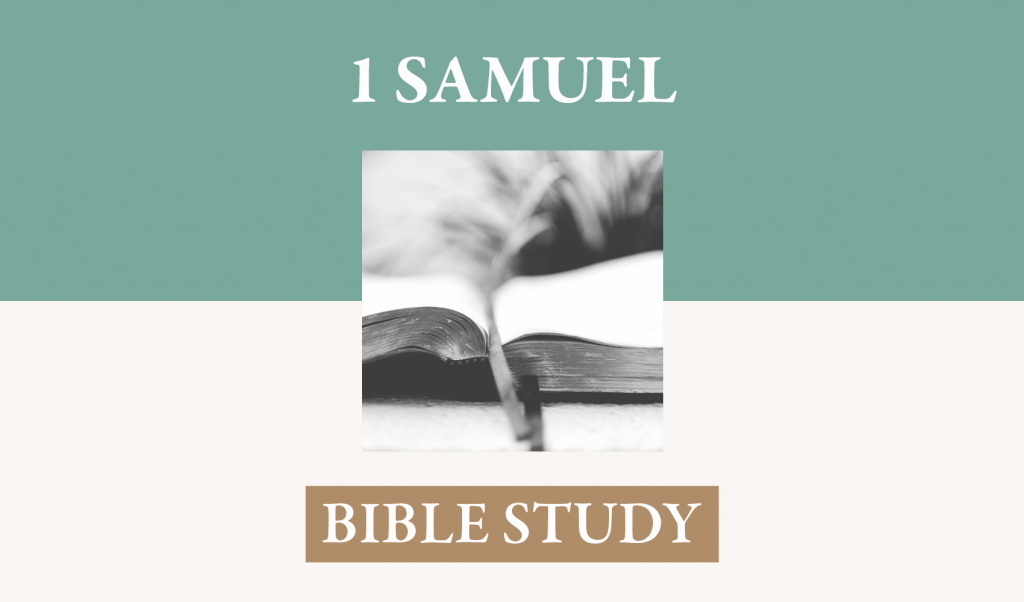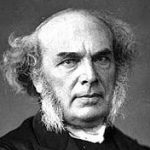The Point: Conflict can arise when I’m thinking only of myself.
Saul and David: 1 Samuel 24:1-2.
[1] When Saul returned from following the Philistines, he was told, "Behold, David is in the wilderness of Engedi." [2] Then Saul took three thousand chosen men out of all Israel and went to seek David and his men in front of the Wildgoats’ Rocks. [ESV]
[1-2] After Saul returned from pursuing the Philistines, he was told about David’s general location in the desert west of Engedi. Saul set out with three thousand chosen men, who outnumbered David’s motley band five to one. The term chosen men refers to warriors who were especially skilled and courageous. Saul narrowed his search to an area near the Wildgoats’ Rocks. The reference to wild goats stresses the inaccessibility of the site and thus sets up a contrast with Engedi which means “Spring of the young goat.” The sheepfolds Saul came to probably consisted of one or more enclosures made of low, stone walls flanking the entrance to a cave. Thus Saul would have entered the pens to gain access to the cave. His purpose in going into the cave was to relieve himself. Saul king of Israel, going inside the cave in search of privacy, is unaware that he is placing himself in mortal danger. Unknown to Saul, David and his men were sitting in the innermost parts of the cave. The traditional titles of Psalms 57 and 142 connect those psalms with this incident. In Psalm 57 David prays for divine help, crying out for deliverance from those who pursue him and whom he describes metaphorically as lions and fiery beasts [57:4]. In the latter half of the psalm [6-11], he praises the Lord for His great steadfast love and faithfulness [10], which assure him of the deliverance he seeks. Psalm 142 similarly voices David’s prayer for divine rescue from those who pursue him, as well as his plea for release from prison (perhaps a reference to the cave). He is grateful for the anticipated deliverance that will take place because of the goodness of God. In both psalms David cries out for divine mercy, and in both he affirms that the Lord, not the cave, is his true refuge [Psalm 57:1; 142:5].
David Spares Saul’s Life: 1 Samuel 24:3-7.
[3] And he came to the sheepfolds by the way, where there was a cave, and Saul went in to relieve himself. Now David and his men were sitting in the innermost parts of the cave. [4] And the men of David said to him, "Here is the day of which the LORD said to you, ‘Behold, I will give your enemy into your hand, and you shall do to him as it shall seem good to you.’" Then David arose and stealthily cut off a corner of Saul’s robe. [5] And afterward David’s heart struck him, because he had cut off a corner of Saul’s robe. [6] He said to his men, "The LORD forbid that I should do this thing to my lord, the LORD’s anointed, to put out my hand against him, seeing he is the LORD’s anointed." [7] So David persuaded his men with these words and did not permit them to attack Saul. And Saul rose up and left the cave and went on his way. [ESV]
[3-7] The writer sets the stage for the events of this passage in verse 3. Saul enters a cave to relieve himself unaware that David and his men are hiding in that very same cave. Thus Saul unknowingly puts himself into the hands of David. What will be the outcome? Will David capture and kill Saul? Will Saul escape? Will Saul’s army capture David and his men? When Saul enters the cave, David and his men carry on a spirited debate about the will of God for David’s life. David’s men can tell a stroke of providence when they see one, so they try to get David to see that the Lord has given Saul into his hand to do to him as it shall seem good to you [4]. At first David seems to agree with his men. He cuts off part of the edge of Saul’s robe [4]. In 15:27-28 the tearing of a robe signified the forfeiture of the kingdom for Saul. Hence David staked his claim to the kingdom when he removed a piece from Saul’s robe. David’s act seems to have been a symbolic declaration of revolt against Saul. Only such heavy symbolism explains David’s remorse: And afterward David’s heart struck him, because he had cut off a corner of Saul’s robe [5]. David’s action and especially his remorse explain his principle: The Lord forbid that I should do this thing to my lord, the Lord’s anointed, to put out my hand against him, seeing he is the Lord’s anointed [6]. As Yahweh’s anointed, Saul’s person was sacrosanct and must not be violated. Why did men consider the anointed to be inviolate, to be kept from attack, and to be preserved from degradation? The answer lies in the fact that once anointed, the individual was set apart or consecrated to God. A specific bond was established in relation to God, in separation from men and women in general, and from the common aspects of life in particular. Hence to touch, defile, and attack the anointed one was to approach the Lord Himself and to seek to defile, harm, and remove the Lord from his rightful place. But try to tell that to David’s men. Apparently David had to get quite forceful with them. The word translated persuaded is a stronger word in the Hebrew meaning “rebuked” or “restrained” [7]. Thus David allows Saul to leave the cave, oblivious to the fact that his premier enemy had just saved his life. Here we see David allowing a principle rather than circumstances to guide his actions. Was Saul coming into the cave providence or temptation? And how was David to tell the difference? It was a searching test for Yahweh’s servant. Only the principle of the sanctity of Yahweh’s anointed answers the dilemma. This principle was not so clear to David’s men. But for David, it was one thing to have the promise of the kingdom; how the kingdom should come to him was another matter. Yahweh’s will must be achieved in Yahweh’s way; the end that God has ordained must be reached by the means that God approves. David’s men do not see this. This kind of test is not confined to David. It comes again and again to most all Yahweh’s servants. It is the temptation of the short cut. We sometimes long to find a key or a major breakthrough or a decisive insight that will place our Christian living on some kind of higher plane where we are most always above hindrance, frustration, and despair. How we yearn for a short cut around the arduous, wearing, time-consuming labor of sanctification. What discernment we need!
David Shows His True Humility: 1 Samuel 24:8-15.
[8] Afterward David also arose and went out of the cave, and called after Saul, "My lord the king!" And when Saul looked behind him, David bowed with his face to the earth and paid homage. [9] And David said to Saul, "Why do you listen to the words of men who say, ‘Behold, David seeks your harm’? [10] Behold, this day your eyes have seen how the LORD gave you today into my hand in the cave. And some told me to kill you, but I spared you. I said, ‘I will not put out my hand against my lord, for he is the LORD’s anointed.’ [11] See, my father, see the corner of your robe in my hand. For by the fact that I cut off the corner of your robe and did not kill you, you may know and see that there is no wrong or treason in my hands. I have not sinned against you, though you hunt my life to take it. [12] May the LORD judge between me and you, may the LORD avenge me against you, but my hand shall not be against you. [13] As the proverb of the ancients says, ‘Out of the wicked comes wickedness.’ But my hand shall not be against you. [14] After whom has the king of Israel come out? After whom do you pursue? After a dead dog! After a flea! [15] May the LORD therefore be judge and give sentence between me and you, and see to it and plead my cause and deliver me from your hand." [ESV]
[8-15] Saul, unaware of all the emotional trauma and analysis of motives that was going on in the cave, calmly went his way back to his own camp. In that terrain sound would travel quite a long way and it seems certain that David allowed Saul to travel to a safe distance before he called out to him. David is consistently portrayed as impulsive and emotional as well as a gifted leader and diplomat. It is not clear what prompted the impulse to make contact with Saul at this point. It could have been a desire to justify himself or maybe a sudden realization that although this could be seen as a God-given opportunity, it was not in fact an opportunity to harm or defeat Saul but to effect reconciliation. Any interpretation of God’s involvement in our circumstances must be based on an awareness of the character of God and on His clearly revealed purposes. The opportunity to take a particular course of action – in this instance to kill Saul – does not mean that that particular action must be supported by God who may in fact have provided an opportunity for something completely different. David’s speech to Saul is certainly an example of brilliant diplomatic skill. He begins with a very dramatic, even melodramatic, bowing down to the ground – both men were fond of extravagant gestures, but it may be that David wanted to make sure that Saul, even at a distance, could see exactly what he was doing. He knows that reconciliation depends on Saul realizing that David poses no threat to his position and he indicates his allegiance to Saul by action as well as word. For David, Saul was still My lord the king [8]. He panders to Saul’s vanity by suggesting that it must have been jealous slanderers who persuaded Saul, because surely Saul was too sensible to think that David really was a threat. He completely reinterprets his own action in cutting off the piece of robe, portraying it as a deliberate means of conveying to Saul that he would never harm him even if he had the opportunity. Whether this was just a diplomatic tactic or whether David had managed to convince himself that he really had not had any of the motivation his conscience told him he had is not made explicit. The tendency to want to think the best of ourselves is universal and David was certainly not immune from it. He calls Saul my father, emphasizing the relationship between them, his own love and loyalty towards Saul and his appreciation of what Saul had done for him in the past. He was certainly not guilty of any wrong or treason in his hands. In fact, it was Saul who had wronged David in hunting him down in this way. David would be glad to allow the Lord to judge between them and it would be God and certainly not David who carried out the results of any judgment against Saul. David has turned the whole thing upside-down by replacing what might have been expected to be a statement of repentance for his own sins into a statement of forgiveness for Saul’s sins against him. He uses proverbs to point out how ridiculous it was for someone as important as the king of Israel to see as a threat a flea on the carcass of a dead dog, which was how unimportant David was in comparison. His final words were again to refer the dispute to the Lord as judge and to pray for his own vindication: May the Lord therefore be judge and give sentence between me and you, and see to it and plead my cause and deliver me from your hand [15]. Here then is the secret that explains David’s waiting – he has confidence in the Lord’s justice. There will be vengeance but the Lord will bring it. David will take no vigilante action himself. The case is in the Lord’s hands; He will prosecute it and decide it in David’s favor. Therefore, David will await rather than grasp the Lord’s gift.
Questions for Discussion:
1. Psalms 57 and 142 give us insight into the mind of David as he and his men hide from Saul in the cave. Read these two psalms. Describe what is going on in the heart of David. What can we learn here concerning how we are to handle fearful events?
2. Describe the conversation between David and his men in the cave. Note the struggle in David’s heart. In the end David chose principle rather than circumstances to guide his actions. What can we learn from David concerning how we are to choose our actions?
3. Describe David’s speech to Saul. What do we learn about David from this speech? How is verse 15 the key verse in this passage? Connect verse 15 to Psalms 57 and 142. How do these two psalms help us understand how David reached the affirmation he makes in verse 15?
References:
1, 2 Samuel, Robert Bergen, NAC, Broadman.
1 Samuel, Dale Davis, Christian Focus.
The Message of Samuel, Mary Evans, Inter-Varsity.
The First Book of Samuel, David Tsumura, Eerdmans.

















